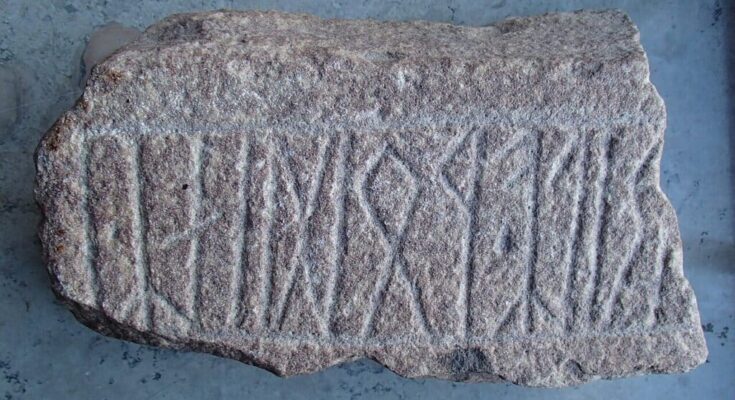
We might think that there cannot possibly be a connection between Greek mythology and the medieval kings of Scandinavia. However, according to several medieval sources, the Norse kings were actually descended from Priam of Troy.
Where does this legend first appear, and what exactly does it claim?
Prose Edda
The primary source text for this legend is the Prose Edda. This is a text that was written in the early thirteenth century, probably by the Icelandic scholar Snorri Sturluson. The Prose Edda provides a detailed and extensive wealth of information about Norse mythology and Scandinavian legendary tradition.
Part of the Prose Edda contains an account of the origin of the Norse gods. It is a euhemerized account, meaning that it presents the gods as real people who only came to be worshipped as gods by later generations.
According to this account, the Norse gods were actually descendants of King Priam of Troy. How did they supposedly get to Scandinavia from Troy? The account explains how this allegedly happened.
How the Norse gods were descended from Priam of Troy
According to the Prose Edda, King Priam of Troy had a daughter named Troan. She married a king in Troy named Munon or Memnon. Perhaps he is supposed to be identical with the legendary Ethiopian king named Memnon who came to Troy in the final year of the Trojan War, though this is unclear.
In any case, the son of Troan and Munon was Tror. His name also appears as Thor. The Prose Edda claims that he lived in Thrace and became a mighty warrior. His descendants continued for eighteen generations until we finally get to Odin, the famous king of the Norse gods.
At this point, the narrative makes it clear that these descendants of Priam were still living in the area of the Black Sea. It appears that they had actually returned to the land closer to Troy itself, since the narrative connects Odin with Turkey.
From Troy to the Norse gods
How did Odin go from the region of Troy to the land of the Norse gods according to this medieval Scandinavian tradition? According to the Prose Edda:
“When Pompey, a Roman chieftain, harried in the east region, Odin fled out of Asia and hither to the north country.”
According to this part of the account, Odin fled to northern Europe after being driven out of Asia Minor by the Romans. However, just a bit further on in the Prose Edda, we find the following claim:
“Odin had the power of divination, and so had his wife, and from this knowledge he found out that his name would be held high in the north part of the world, and honored beyond that of all kings.”
While this might seem like a contradiction, it can be easily harmonized with the previous claim. It seems that Odin was forced to leave Asia due to the attacks from the Romans. Nevertheless, due to his alleged foreknowledge, he was happy to move on to other lands.
When did this happen?
When did the Norse gods allegedly leave their homeland near Troy? According to the Prose Edda, Odin fled when the Roman general Pompey was campaigning in the east. This can only be Pompey the Great, best known as the enemy of Julius Caesar.
Pompey’s war in the east historically occurred between 66 and 63 BCE. This chronology for these events is supported by a statement that appears much later in the Prose Edda. This later part says that Odin had a great-grandson named Frode.
Frode, in turn, is said to have succeeded his father Fridleif at the time when “Emperor Augustus established peace in all the earth and Christ was born”. This probably places Frode’s birth in approximately the middle of the first century BCE.
In turn, Frode’s great-grandfather Odin would have been born in the second half of the second century BCE. This is consistent with the date of c. 66 BCE for Odin being driven north by Pompey’s war against the east.



